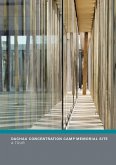The notorious concentration camp system was a central pillar of the Third Reich, supporting the Nazi war against political, racial and social outsiders whilst also intimidating the population at large. Established during the first months of the Nazi dictatorship in 1933, several million men, women and children of many nationalities had been incarcerated in the camps by the end of the Second World War. At least two million lost their lives.
This comprehensive volume offers the first overview of the recent scholarship that has changed the way the camps are studied over the last two decades. Written by an international team of experts, the book covers such topics as the earliest camps; social life, work and personnel in the camps; the public face of the camps; issues of gender and commemoration; and the relationship between concentration camps and the Final Solution. The book provides a comprehensive introduction to the current historiography of the camps, highlighting the key conclusions that have been made, commenting on continuing areas of debate, and suggesting possible directions for future research.
This comprehensive volume offers the first overview of the recent scholarship that has changed the way the camps are studied over the last two decades. Written by an international team of experts, the book covers such topics as the earliest camps; social life, work and personnel in the camps; the public face of the camps; issues of gender and commemoration; and the relationship between concentration camps and the Final Solution. The book provides a comprehensive introduction to the current historiography of the camps, highlighting the key conclusions that have been made, commenting on continuing areas of debate, and suggesting possible directions for future research.
2010 Choice Recommended Title.
'[This] collection is well written and, where relevant, well translated, which makes it an excellent teaching tool for both undergraduate and graduate students. The historiographical overview in each essay and the bibliography in the appendix are invaluable, and the informed and meticulous editing enables the reader to understand the multiple context of the camps: encompassing terror, ruling, war, the Holocaust, the rationality of the the economy and the surrounding society. While everyone knows about the camps as a metaphor for the horrors of Nazi Germany, this volume helps to understand how they were intertwined with most of its aspects.' - Anna Hájková, University of Toronto, Canada
'...a goldmine of information on a topic that, contrary to conventional opinion, still remains shrouded in mystery and obscurity despite the enormous growth in research on the Holocaust in recent years. This volume, edited by Jane Caplan and Nikolaus Wachsmann with contributions by nine of the most respected German, British, and American historians in the field, is by far the best and most up-to-date historical introduction to the camps now available. Even for someone who has spent a lifetime studying Nazi Germany, this volume contains quite a few surprises ... The coverage of the camps is remarkably detailed for so slim a volume, and the documentation is excellent throughout ... This book is also a gripping read, despite its unhappy subject. No one can read this book without being profoundly affected.' - Roderick Stackelberg, Gonzaga University, USA
'A remarkably lucid collection of essays on Nazi concentration camps written by leading international scholars in the field. This 'new history', splendidly edited, provides important new insights into the debates about Nazi terror, the Holocaust and the wider nature of the Third Reich. An authoritative and compelling volume that will become essential reading for students and lecturers of modern German history.' - David Welch, University of Kent, UK
' a standard work for teaching and research.' - Historische Zeitschrift
'This collection of essays gracefully fulfils its goal of bringing English readers abreast of the extensive recent work in German about Nazi concentration camps. ... The authors and editors of this volume provide a synthetic overview of emerging scholarship in the field, helping to overcome fragmented scholarship and linking narrow views of camps with wider examinations of Nazi Germany. Many existing studies of concentration camps are encyclopedic rather than analytic. The volume also provides many fruitful avenues for future research.' - German Studies Review
'In short, this book is an outstanding piece of work which is recommended to both newcomers in the field and scholars who have extensively researched the Nazi camps. It is general enough to make the subject accessible to a wide readership, yet detailed enough to attract the interests of specialists by covering a plethora of recent research literature. If the topic were not so grim, I would add that it is a sheer joy to read such concise, clear, and lucid articles by historians at the cutting edge of their profession.' - German Historical Institute London Bulletin
'[This] collection is well written and, where relevant, well translated, which makes it an excellent teaching tool for both undergraduate and graduate students. The historiographical overview in each essay and the bibliography in the appendix are invaluable, and the informed and meticulous editing enables the reader to understand the multiple context of the camps: encompassing terror, ruling, war, the Holocaust, the rationality of the the economy and the surrounding society. While everyone knows about the camps as a metaphor for the horrors of Nazi Germany, this volume helps to understand how they were intertwined with most of its aspects.' - Anna Hájková, University of Toronto, Canada
'...a goldmine of information on a topic that, contrary to conventional opinion, still remains shrouded in mystery and obscurity despite the enormous growth in research on the Holocaust in recent years. This volume, edited by Jane Caplan and Nikolaus Wachsmann with contributions by nine of the most respected German, British, and American historians in the field, is by far the best and most up-to-date historical introduction to the camps now available. Even for someone who has spent a lifetime studying Nazi Germany, this volume contains quite a few surprises ... The coverage of the camps is remarkably detailed for so slim a volume, and the documentation is excellent throughout ... This book is also a gripping read, despite its unhappy subject. No one can read this book without being profoundly affected.' - Roderick Stackelberg, Gonzaga University, USA
'A remarkably lucid collection of essays on Nazi concentration camps written by leading international scholars in the field. This 'new history', splendidly edited, provides important new insights into the debates about Nazi terror, the Holocaust and the wider nature of the Third Reich. An authoritative and compelling volume that will become essential reading for students and lecturers of modern German history.' - David Welch, University of Kent, UK
' a standard work for teaching and research.' - Historische Zeitschrift
'This collection of essays gracefully fulfils its goal of bringing English readers abreast of the extensive recent work in German about Nazi concentration camps. ... The authors and editors of this volume provide a synthetic overview of emerging scholarship in the field, helping to overcome fragmented scholarship and linking narrow views of camps with wider examinations of Nazi Germany. Many existing studies of concentration camps are encyclopedic rather than analytic. The volume also provides many fruitful avenues for future research.' - German Studies Review
'In short, this book is an outstanding piece of work which is recommended to both newcomers in the field and scholars who have extensively researched the Nazi camps. It is general enough to make the subject accessible to a wide readership, yet detailed enough to attract the interests of specialists by covering a plethora of recent research literature. If the topic were not so grim, I would add that it is a sheer joy to read such concise, clear, and lucid articles by historians at the cutting edge of their profession.' - German Historical Institute London Bulletin









